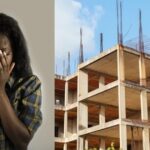
The committees have a four-week timeframe to report to the House for further legislative action.
This is even as the House urged the Bureau of Public Enterprises to embark on regular inspections and monitoring of government-owned enterprises acquired by investors.
This resolution was a sequel to the adoption of a motion titled, ‘Need to investigate the privatisation and subsequent abandonment of Osogbo Steel Rolling Mills,’ sponsored by Adewale Adebayo and Akanni Ademola.
The House noted that Osogbo Steel Rolling Company was one of the three Inland Rolling Mills in Nigeria established by the Federal Government Act of 1976 and officially inaugurated in 1983 to produce a maximum of 210,000 metric tons of iron rods annually.
It was similarly noted that Nigeria Machine Tools was founded in 1980 to manufacture and distribute high-integrity machine tools and other engineering products and spares designed to serve the projects, operations and maintenance needs of a range of industries.
The House further stated that the two entities were critical components of the nation’s industrial sector as the Osogbo Steel Rolling Mills produced part of the steel used in the construction of Nigeria’s longest bridge – the Third Mainland Bridge in Lagos State.
At a plenary presided over by the Speaker, Tajudeen Abbas, the House said it was aware that the Privatisation and Commercialisation Act provides for the privatisation and commercialisation of FG-owned enterprises, as well as those in which the FG retains an equity stake.
The House said it was further aware that the Osogbo Steel Rolling Company was designed to be completed in three phases – the first phase to produce 210,000 tons annually with 1,000 workers; the second phase to produce 420,000 tons of steel annually with a staff strength of 2,000; while the third phase was to increase the capacity to 630,000 tons annually with 3,000 staff strength.
The House recalled that in line with the Privatisation Act, the FG sought and got a Federal High Court order to liquidate Osogbo Steel Rolling Company and other Steel rolling mills in 2005.
It also recalled that the stakeholders in Osun State, including lawmakers, are protesting the abandonment of Osogbo Steel Rolling Mills and Nigeria Machine Tools, calling for a review of privatisation.
Adebayo said the House was “worried that after the privatisation of Osogbo Steel Rolling Mills, the company has suffered a lack of maintenance and investment leading to a state of disrepair and operational inefficiency, thus undermining the potential of the steel industry to create employment opportunities and economic growth in the region.
“It is also worried that after the privatisation of Nigeria Machine Tools, the company has experienced a decline in production capacity and overall performance which is a significant setback for the manufacturing sector.
“The House is further worried that the abandonment of the Osogbo Steel Rolling Mills and Nigeria Machine Tools by investors and the failure of the BPE to oversee and enforce the provisions of the asset sales and purchase agreement has led to the proliferation of substandard steel products littering the Nigeria market.”
The House lamented that the abandoned properties are now safe havens for gunmen, kidnappers and illicit drug traders who have constituted a nuisance in Nigerian society.





